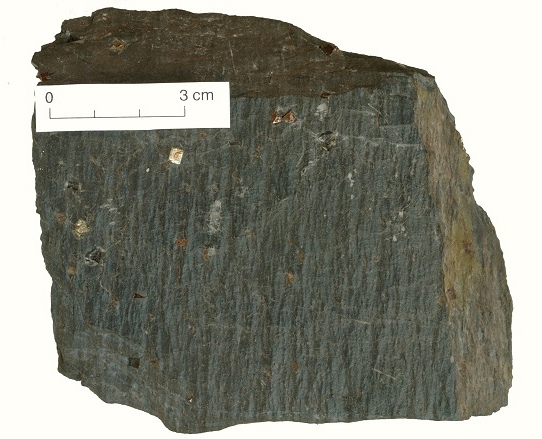
![]() Black slate
Black slate
Slate is a fine-grained low-grade metamorphic rock formed
from shale or mudstone. The action of pressure flattens the
rock and causes tiny platy minerals to line up in the same
direction, giving the rock a cleavage. The rock will split
into thin sheets along the cleavage, making it useful for
roofing material. The cleavage is not usually parallel to
the original bedding in the sediment. Slate has a dull
appearance on the cleavage surfaces, as the crystals are too
small to be visible. If they are large enough to reflect the
light and give a bright sheen, the rock should be called a
phyllite, and if individual mica crystals can be seen with
the naked eye it is a schist. This slate is very dark in
colour, having formed from a carbon-rich shale. We are
looking directly at one of the cleavage surfaces: it is not
perfectly flat, but has fine crinkles running up and down.
You can also see several cubes of pyrite (iron sulphide,
otherwise known as fool's gold); some are shiny and golden,
others tarnished and brown.